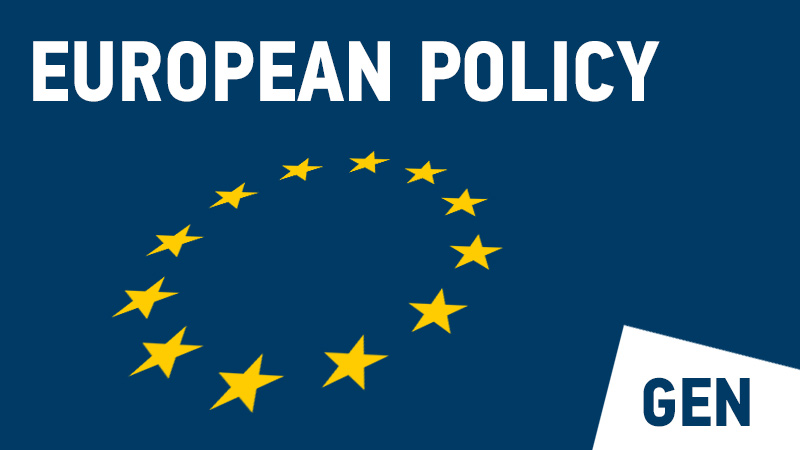GEN - 893.00. In many countries, questions are asked about the auditors authorised by the Regulation 517/2014 on the emissions of Fluorinated Greenhouse Gases, as well as about the obligations, thresholds, timing, etc. The obligations include reporting above certain thresholds (Importers of substances as well as equipment), Declaration of Conformity (since 01/01/2018) for pre-charged equipment, and quotas above a CO2eq threshold and for imports under certain conditions.
F-Gas Regulation guidance documents
The European Commission maintains a website where the relevant information on the F- Gas Regulations is posted. The website contains guidance and FAQ documents, including one that explains the procedure for importers of Pre-Charged Equipment (PCE) in detail.
On 18 March 2018, the informative FAQ on company reporting obligations has been updated.
Summary and details on reporting
The Regulation 517/2014 provides the framework to deal with the emissions of Fluorinated Greenhouse Gases (F-gases). The quantitative provisions are expressed in CO2 equivalent (CO2eq), meaning that the physical quantities of each single F-gas may vary depending on the Global Warming Potential (GWP) of the gas/blend considered (see Annex I – II - IV). The Commission has provided a spreadsheet (GEN – 893.03 – F-gas tool-1.xls) that converts any physical quantity of many F-gas into their equivalent in CO2.
The Chapter IV of the Regulation indicates how the quantities placed on the market (POM) are reduced by setting up a quota system for bulk supply of F-gases (Art. 16) and a registry that is managed by the Commission itself (Art. 17). It opens the possibility for importers of PCE to get authorizations which are a contractual agreement between a quota holder and an importer for using a specific amount of quota to import the equivalent quantity (in CO2eq) of gas in an equipment.
Chapter V, Art. 19 stipulates that the reporting modalities for the production, import, export, feedstock use and destruction of the substances:
- Art. 19.1 stipulates that the quantities must be reported when they reach the threshold of 1 metric ton or 100 CO2eq or more, in total (i.e. all gases combined). This applies to the bulk quantities
- Art. 19.4 stipulates that reporting is mandatory for the placing on the market when the threshold of 500 tCO2eq or more in total is reached. This applies to F-gases contained in equipment
- Art. 19.5 stipulates that importers of PCE from a total of 100 tCO2eq or more shall have the gas quantity covered by authorisation and submit a verification report according to Art. 14.2
- Art. 19.6 imposes reporting on the Quota Holder issuing Authorisations
Chapter III contains the provision for the placing on the market and Art. 14 defines the conditions for the PCE:
- Art. 14.1 stipulates that from 2017-01-01 on, any quantity of F-gas in a PCE shall be accounted in the registry
- Art. 14.2 stipulates that from 2018-01-01 on, the importers shall produce a Declaration of Conformity (DoC) for all PCE imported the year before and ensure that this report is verified by an Independent Auditor (either accredited under the Dir 2003/87/CE (ETS) or accredited by the Member State) to verify financial statements. This documentation must be available at least at the moment of import (meaning at the Custom Clearance) and must be kept for 5 years
Implementation Regulation (EU) 1375/2017 determines the format and means for reporting.
Regulation (EU) 2016/879 details the arrangements relating to the DoC:
- Art. 1 explains what a DoC is, and how and when to prepare it
- Art. 2 details all the documents and information that are required
- Art. 3 explains the role and duty of the Independent Auditor when preparing the Yearly Verification Report
- Art. 4 explains how and when to submit the report. The deadline for submitting it is 31 March of the year after the imports took place
Independent Auditors
Each Member State has its own list of auditors that are accredited by their National Accreditation Authority. An overview of the relevant website is attached as GEN – 893.03.
Recommended actions
The reporting, auditing, verification and the Declaration of Conformity are mandatory. Companies are recommended to ensure compliance with these requirements.
By using refrigerants with a low GWP, it can be possible to remain below the thresholds for reporting, auditing and verification.
Related documents and links
All related documents and articles can be found in the respective sections in the right sidebar.
- GEN – 893.01 – Information for importers of equipment containing fluorinated greenhouse gases on their obligations under the EU F-gas Regulation
- GEN – 893.02 – F-Gas tool
- GEN – 893.03 – List with access to accredited auditors (2018-03-18)
- Commission F-Gas Regulation website
- Commission F-Gas guidance and FAQ documents
- Commission FAQ on company reporting (18 March 2018)
- GEN – 890.00 – Update on 3rd Consultation Forum F-Gas Regulation held on 6 March 2018
